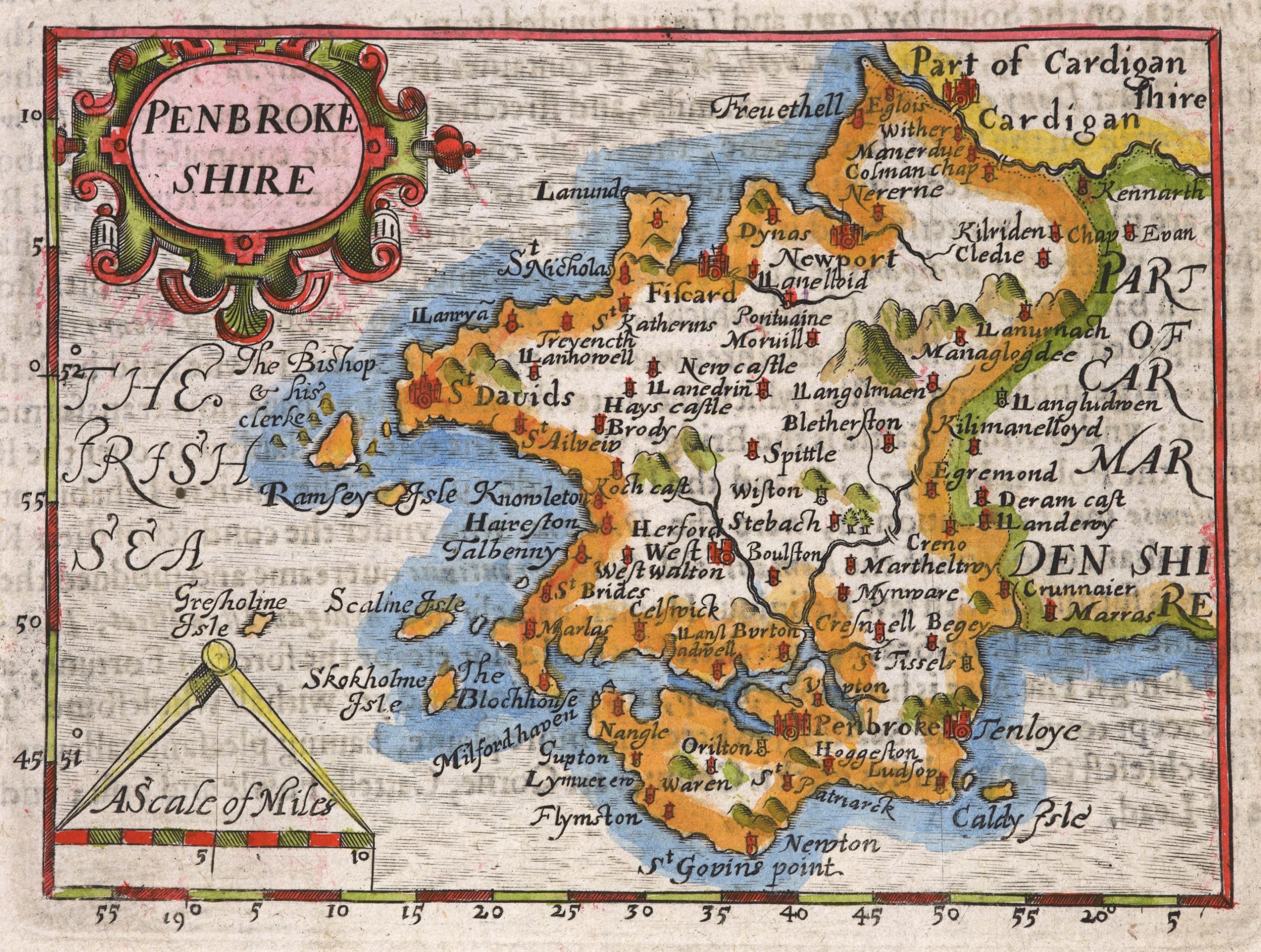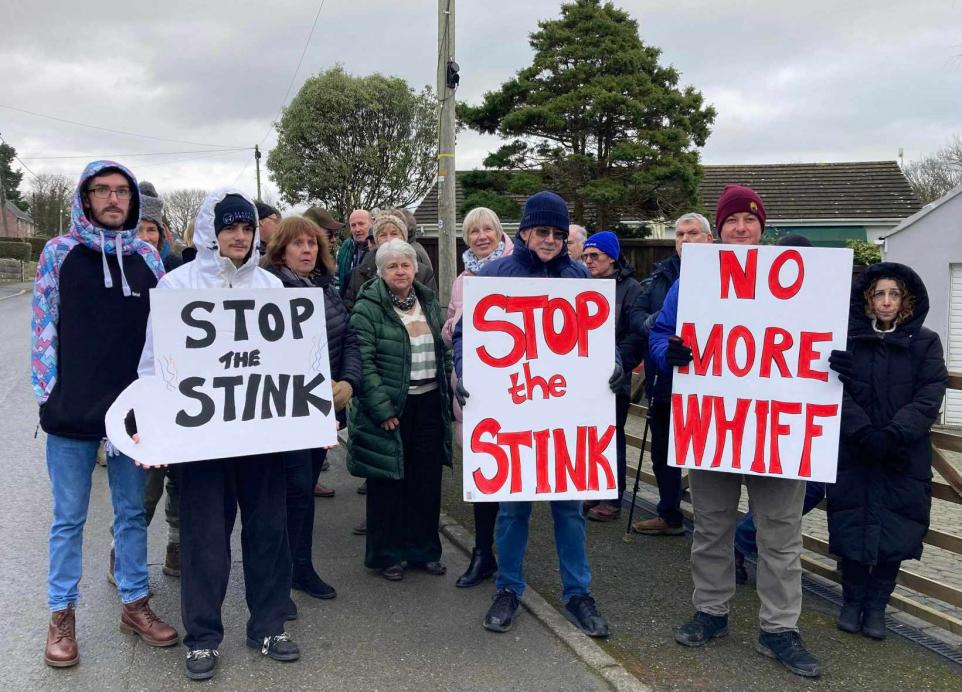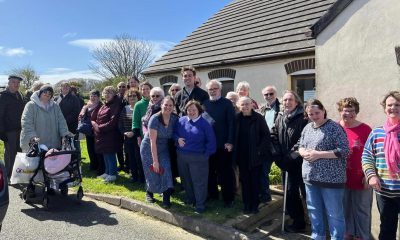News
Wales to the World: celebrating maps in a brand new exhibition

ON SATURDAY (Sept 23) an exciting new exhibition of maps from the National Library of Wales will open at the Riverside Gallery, Haverfordwest. The Wales to the World exhibition will display a selection of maps from the more than 1.5 million objects cared for in the National Map Collection in Aberystwyth. The exhibition ranges from the oldest map in the National Library of Wales to newly commissioned artworks, funded by Welsh Government’s Anti-racist Wales Action Plan.
Highlights of the exhibition include Cambriae Typus by Humphrey Llwyd – the earliest printed map specifically of Wales, a Cold War map of Pembroke Dock secretly drawn by the Soviet Union, 17th century playing cards on a map theme, and a German propaganda map quoting David Lloyd George. Brand-new artworks inspired by the map collection will also be on display for the first time in this exhibition, alongside the items that inspired them.
The new exhibition covers the development of Wales on the map, maps as tools of learning and play, and the power of maps to persuade and mislead us. The exhibition was created by Ellie King, Assistant Map Curator at the National Library of Wales. Ellie is a newly qualified librarian and has been mentored by the exhibitions team as part of the National Library’s commitment to providing learning and development opportunities for staff.
Ellie King, Assistant Map Curator at the National Library of Wales said: “Curating this exhibition has been a voyage of discovery, and it has been a privilege to delve into the history of some of the National Library of Wales’ cartographic treasures. I hope they will help to showcase the extraordinary breadth of the map collection. I am particularly pleased to be able to include the artistic responses to the collection by Mfikela Jean Samuel and Jasmine Violet, which highlight the enduring power of the maps held here in the National Library, as well as the need to consider them from new perspectives.”
Rhodri ap Dyfrig Head of Marketing and Audiences at the National Library of Wales said: “We are proud to be partnering once again with the Riverside Gallery to share our collections with a wider audience, and also to be providing opportunities for curatorial staff development. The maps themselves offer a fascinating and valuable insight into how Wales saw itself and how it was seen by others in the world at different periods through history.”
To coincide with this exhibition a programme of events and education workshops will take place at the Riverside Gallery, starting with a conversation session between the artists Mfikela Jean Samuel and Jasmine Violet and Ellie King on 19 October at 5:00pm. Full details will be available on the Riverside Gallery website and Facebook page soon.
Showing alongside the Wales to the World exhibition is the permanent exhibition Pembrokeshire: Past and Present, focusing on the history, culture and landscape of Pembrokeshire, which will display a selection of new items this season.
Both exhibitions will run until Saturday 24 February 2024.

News
Welsh Lib Dems urge First Minister to return dodgy donation

THIS week in the Senedd, the Welsh Liberal Democrats have urged the First Minister to return the £200,000 donation he received from a company linked to environmental crimes.
Speaking to the Senedd on Wednesday, party leader Jane Dodds MS urged FM Vaughan Gething to return money donated to his campaign by Dauson Environmental, a refuse and recycling business owned by David John Neal.
Mr Neal received a 3-month suspended prison sentence in 2013 for illegally dumping waste at a conservation site on the Gwent levels.
His companies Atlantic Recycling and Neal Soil Suppliers were also prosecuted and given fines and costs of £202,000.
Then in 2017, Mr Neal was given another suspended sentence of 18 weeks, with fines and costs of £230,000 after failing to remove the waste.
The Welsh Lib Dems have called on the FM to return the donation, as part of wider calls for a shift away from the influence of “big money” in Welsh politics.
Commenting, the Leader of the Welsh Liberal Democrats Jane Dodds MS said:
“This entire episode has casted a dark shadow upon Welsh democracy and has rightfully led to many questioning the integrity of Vaughan Gething’s leadership campaign and the way our democracy works here in Wales.
Unfortunately for many of us this is hardly surprising, as our political system has been broken for quite some time now.
A system that empowers the elite donor class whilst simultaneously shutting out the voice of the voter is a perversion of democracy itself.
This is why our wider goal must be to remove the influence of ‘big money’ from Welsh politics once and for all.
We cannot have another government that prioritises the interests of its financial benefactors over those of the Welsh people.
We need to take a firm stance in rooting out the influence of cash in Welsh politics, for the sake of our communities we must start prioritising their interests and needs instead of having more self-serving politicians.”
News
Council seeking legal advice to address Withyhedge enforcement

PEMBROKESHIRE County Council says it has sought legal advice and is contemplating legal proceedings against Withyhedge Landfill operators RML, in regards to the ongoing odour issues at the site.
The Council intends to ask the Court for an injunction requiring RML to abate the public nuisance odour arising from the landfill. Failure to comply with the injunction would be contempt of court, which carries a penalty of up to two years’ imprisonment and unlimited fine.
Following significant work undertaken by RML the Authority is disappointed that the problem has not been resolved and residents continue to be impacted by the odour.
Working in collaboration with Natural Resources Wales (NRW) and Public Health Wales (PHW), we fully appreciate that the communities affected cannot tolerate this any longer.
NRW announced that the first set of deadlines for the completion of actions to tackle the ongoing odour issues at Withyhedge Landfill have been met, one week on following the issuing of further enforcement action on 18th April.
This will be closely monitored by NRW to ensure the operator complies with all the actions set out in Notice by 14 May.
It was deemed appropriate to wait until the operator had carried out mitigation to comply with the enforcement requirements by NRW prior to considering this additional action.
To that end, on 26th April 2024, the Council served RML with a letter of claim and invited them to give legally binding undertakings to abate the odour nuisance or face legal proceedings. The Council also asked for disclosure of documents relevant to the proceedings, including records of waste brought in or removed from the landfill.
The Council has given RML until 14th May 2024 to respond to its letter of claim. This aligns with the current deadline set by NRW under its enforcement notice.
Pembrokeshire County Council Chief Executive Will Bramble welcomed the move. He said: “We are extremely disappointed that RML has not delivered the necessary action to stop the completely unacceptable smells from the site.
“We fully support the additional enforcement action being taken by NRW and continue to work closely with them to do all in our power to correct the situation.
“Our intention to ask the Court for an injunction requiring RML to stop the odour nuisance arising from the landfill, is another part of our collaborative approach. The smell from Withyhedge is having a major impact on residents and visitors. This situation has gone on too long and it is unacceptable.”
News
Beautiful, funny and lovely: Family pay tribute to Sian Batchelor

THE family of a woman has paid tribute to a “beautiful, funny, lovely person.”
Sian Batchelor, aged 32, was found on a beach near Pennar, Pembroke Dock on Tuesday evening, April 30th, 2024.
Her family has issued a statement to say: ‘We are devastated by our loss. Sian was a beautiful, funny, loving person. We will treasure the good times we had with her.
“We would now like time to grieve and would ask to be given privacy in which to do so.”
The circumstances surrounding Sian’s death are being investigated and police would like to hear from anyone with information, sightings of Sian or contact from Sian, between Thursday April 25 to Tuesday April 30.
Police can be contacted either online at: https://bit.ly/DPPContactOnline, by emailing [email protected], or by calling 101. If you are deaf, hard of hearing, or speech impaired text the non-emergency number on 07811 311 908.
Quote reference: DP-20240430-284
-

 News2 days ago
News2 days agoPolice investigating after woman found dead on beach near Pennar
-

 News2 days ago
News2 days agoPolice discover body in search for Luke Stephenson, 19
-

 News2 days ago
News2 days agoCouncillors block Milford Haven boxing event – promoter to appeal
-

 Crime3 days ago
Crime3 days agoLlandissilio man accused of making hundreds of child abuse images
-

 Business7 days ago
Business7 days agoLargest Welsh port appoints communications and marketing director
-

 Business3 days ago
Business3 days agoLidl GB eyes Pembroke Dock for new larger supermarket
-

 News15 hours ago
News15 hours agoBeautiful, funny and lovely: Family pay tribute to Sian Batchelor
-

 News2 days ago
News2 days agoSearch efforts continue for missing teenager Luke Stephenson
































